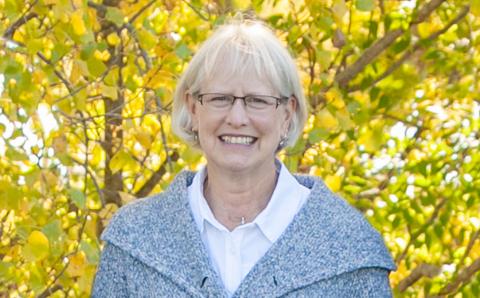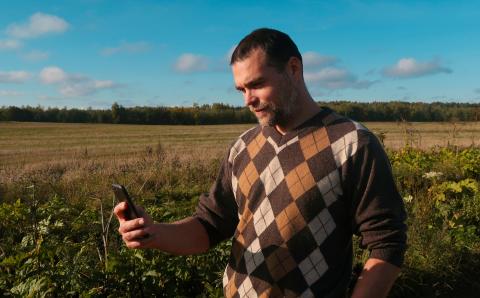A 16-year-old high school student was told by his cancer specialist, “Isa, we’ve run out of chemo options; there is little we can do.” At school the student approached a fellow 10th-grader.
“I have cancer, and the doctor told me I am going to die,” he said. “I don’t want to die. I want to be baptized. Can I be baptized in your church?” We worked it out, and I baptized him in a Sunday morning service with about 300 worshipers looking on. I encouraged the church to pray for Isa’s healing during the coming week, asking those who committed to do so to stand. Most did.
As he stood before the congregation, I said, “Isa, God will heal you.” It was said before I could stop it. About five months later I received a call from his mother: “Preacher man, I got a call from Isa’s oncologist. They did an MRI, and Isa’s body is cancer free!” Now, six years later, Isa has graduated from university and still is cancer free. God still heals!
In John 14:12, Jesus says, “I tell you for certain that if you have faith in me, you will do the same things I am doing” (CEV). Did he mean we would participate in miracles? Do miracles occur to show us that God exists and is powerful? How does that affect the church’s spirituality? Jesus adds, “You will do even greater things, now that I am going back to the Father.”
In 1963 I stumbled into my first healing experience. As a seminary student I served a summer assignment in a young church plant in northern Alberta. As a single man, I was “adopted” by a couple active in the church. They’d been married 16 years and had painfully accepted that they would have no children; they no longer even talked about it. Evenings often saw us together when we discussed everything about the day past and planned for the day ahead. On such evenings we often ended with a snack—usually a very unhealthy one, such as bacon and eggs at midnight.
That night, with a plate of the usual goodies before us, we were sad because in the morning I would leave for Grand Rapids to start my second year at the seminary. Without thinking, I said, “I will miss you. You’ve been like wonderful parents to me.” It became painfully quiet, and I looked for a place to hide. I noted tears trickling down Ann’s usually jovial face. My intended compliment struck a sore spot, and trying to fix it made it worse when I said, “Have you prayed about this?” Of course they had! I responded, “Can I pray with both of you?” We joined hands as I pleaded with God—not for very long, but with urgency—that he would bless them with children. I acknowledged that though it seemed late on their calendar, it was not so on God’s, adding, “Nothing is impossible for him.”
We hugged and soon said our goodbyes. I left the next morning. Rather surprisingly, 10 months later I received an announcement. The new father wrote, “It’s a miracle! Ann and son are fine. Thanks be to God!” They later adopted another boy. They had children!
That first miracle opened the door for me to realize miracles still happen, and it aroused a hunger for more. Many times during my years of ministry I have prayed for miracles to occur. Since retiring I have reread the gospels and especially the book of Acts several times, asking God to make us Spirit-filled churches where “signs and wonders” regularly occur and result in conversions and growth.
Have Faith
Jesus did many miracles, sometimes without comment. But “faith,” “belief,” or even “unbelief” is often mentioned when Jesus speaks about miracles. Healings were a primary teaching connection between Jesus and the disciples. They were to believe him and also do miracles, thus carrying on his mission. It’s after some healings that Jesus commissions them to do what he was doing (Matt. 10; Mark 6; Luke 10). He gave them power and authority to drive out demons, heal the sick, and preach the kingdom. They were to wait for the Holy Spirit and then carry on in Jesus’ absence, though he assured them he would be with them “to the very end of the age” (Matt. 28:20).
Healings and faith come together in a variety of miracles. Faith is essential to come to Christ, and we cannot nurture a meaningful relationship without faith in him. “Without faith it is impossible to please God” (Heb. 11:6).
In Luke 7-8, we see a centurion, a bleeding woman, and a man named Jairus each put their faith in Jesus for healing and receive it, regardless of their societal standing or expressed religion. These are examples of faith in action as described in Hebrews 11:1: “Faith is confidence in what we hope for and assurance of what we do not see.” Faith is not governed by feelings. It simply believes what God said is true because God said it. It is not so much what has been said as who said it. We believe God’s Word to be fully reliable truth because God himself is the truth and cannot lie. That’s all. No more, no less. Inner confirmations are nice—maybe even helpful—but not needed.
Making Disciples
Miracles were a vibrant part of Jesus’ ministry. Why were they necessary? John Wimber, a charismatic pastor in the 1970s, saw miracles as “signs and wonders.”
“Signs and wonders, all Western evangelicals acknowledge, were necessary to authenticate Christ’s divinity,” he writes in his book Power Evangelism. “Further, signs and wonders were key in establishing the apostolic authority of the twelve and Paul” (p. 108).
In the gospels, but especially in the book of Acts, ministries and miracles are mentioned more than 10 times as “signs” or “wonders” (John 4:48; 6:30; 20:30-31; Acts 2:19, 22, 43; 4:30; 5:12; 6:8; 7:36; 8:13; Heb. 2:4). There were miracles in the Old Testament with Moses and Pharaoh and in the New Testament with Jesus and the church. They were like preludes that opened doors to the minds and hearts of skeptical listeners, often leading to conversions to faith by the thousands after a miracle was witnessed (Acts 2:41; 4:4; 6:1, 7). That’s what I long to see!
What does this say to us as the church? I believe many now need a fresh touch of the Holy Spirit to be convinced that Jesus is alive, divine, and willing to surprise us with powerful miracles. In our hedonistic culture, are covenant youth losing firm childhood convictions built up through early family nurturing? Are they dazzled and mesmerized by secular explanations of creation and spirituality—maybe even entranced by the “many” ways to God and intrigued with the variety of gods? Is God challenging us to have showdowns as to who is truly God? I believe signs and wonders are still available, meant to convict people that God is alive and well. For those who question whether miracles are for today consider what Reformed theologian G.C. Berkouwer wrote in The Providence of God (p. 224-225):
We find nothing in the Scriptures to indicate a line that we can draw through a definite period to mark off a boundary between the time of miracles and the time of the absence of miracles. … The many signs that still appear after Pentecost should make us the more careful not to set limits, in our enlightened era, to the miraculous activity of God. There is not a single datum in the New Testament which makes it certain that God, in a period of strengthening and extending of the church in heathendom, will not confirm his message with signs, in holy resistance to the demonic influences of the kingdom of darkness.
Is this a time when we should be praying for and seeking signs and wonders so vivid that many are drawn to vibrant, saving faith? Yes! God healed in partnership with his Son, Jesus, who then empowered the apostles to heal with the Holy Spirit. Healing is now turned over to us, the church. In fact, Jesus doesn’t call us his servants, but his friends, with whom he shares his work plans (John 15:15): teamwork at its finest.
Stories of Healing
I witnessed one of my first miraculous healings about 50 years ago when a rural 19-year-old man was transferred to the large Calgary Foothills Hospital. He had been in a deep coma for some time due to a high fever. Doctors told us we should not expect him to live. At the urging of a saintly woman, we stood by his bed, believed, prayed, and spoke words of healing. Immediately the man jolted awake. He had a long period of recovery, but Jesus healed him completely.
In my experiences of healing I have often seen such an immediate change of condition followed by a period of recovery. That was the case during the pandemic when we received an early-morning text message from a friend about “Joe.” Joe was in intensive care in a Chicago-area hospital, where CPR was administered three times. Joe was unconscious and in critical condition. When I read the text I became anxious and angry, sensing that this was the work of the devil.
I phoned Joe’s father and asked, “What is happening to your son?” I will never forget his response: “Henry, I am so scared. I have never been so scared in all my life. I have one son, and I am afraid I am going to lose him today!” Without any hesitation I responded, “Are you ready to do battle?” Before he could answer I heard his wife immediately respond, “I am!” The following conversation ensued:
“Your son is a covenant child who wants to do God’s will,” I said, “and the devil doesn’t like it. In fact, he hates it and obstructs with all his might in his battle to dethrone God. He is trespassing on property for which God has paid the title in full. Your son belongs to God, and in the name of Jesus, I order you, devil, to get off God’s property now—and never come back!”
I meant it with every ounce of my being, and the devil must have known it. Within only a few hours Joe’s condition totally changed. Though full recovery took some months, he is now well and fully back at work.
But not every healing is instantaneous. I remember a 51-year-old man in our Oshawa congregation who had multiple sclerosis so advanced that his company had released him with early disability eight years earlier. He could not walk more than 200 feet at a time, and then only with a cane. In 1984 he wrote our church elders a letter asking them to anoint him with oil, lay hands on him, and pray for healing (James 5:14-16). He was convinced God would heal him. Because it was the first time our elders had done this, some were skeptical. But other than the discomfort of doing something different, we saw no downside to his request. When we did it, there were no signs, no flashes, no thunder, no anything. But since that day, the man has had no further MS flare-ups. He healed slowly but steadily. About 20 years later, he was hiking and biking all over Oshawa and regularly swimming laps. He died of old age in 2019—35 years after we prayed over him.
How can we carry on God’s healing work today? With the help of the Holy Spirit in us as we do the “greater things.” I continue to plead for the Holy Spirit to sweep through the entire Christian Reformed Church with the fulfillment of his promise. I urge pastors and others to step out of the boat of safety as Peter did and risk a water walk. Allow Jesus to take your hand and lift you up when you experience doubt, fear, and criticism. To minister in healing with faith, love, and obedience is exhilarating. Each time I participate in it, it leaves me weak but grateful. This is not a casual prayer ministry. It is a connection in faith with the God of all power as we seek his kingdom (Matt. 6:33). It flows into trust, obedience, and contentment. It gives perspective. Jesus has our back, and he asks us to believe and “just do it!”
Discussion Questions
- Have you ever experienced a miracle, or do you know of someone who has? What was the story?
- Do you believe God still does miracles like healing through Christians today? Why or why not?
- What, do you think, is holding the church back from “just doing it”—stepping out in healing ministry?
- In seeking miracles, what safeguards or cautions might we need?
About the Author
Henry Wildeboer is a retired pastor in the CRC. After pastoring a church in Washington State and two churches in Canada, he taught Leadership Development at Tyndale Seminary. He also served as Regional Director with Home Missions. He has written two books, Miraculous Healing and You (1999), and When God Shows Up: A Pastor's Journey (2013). Henry and his wife Jan live in Bowmanville, ON., and attend Rehoboth Christian Reformed Church.








